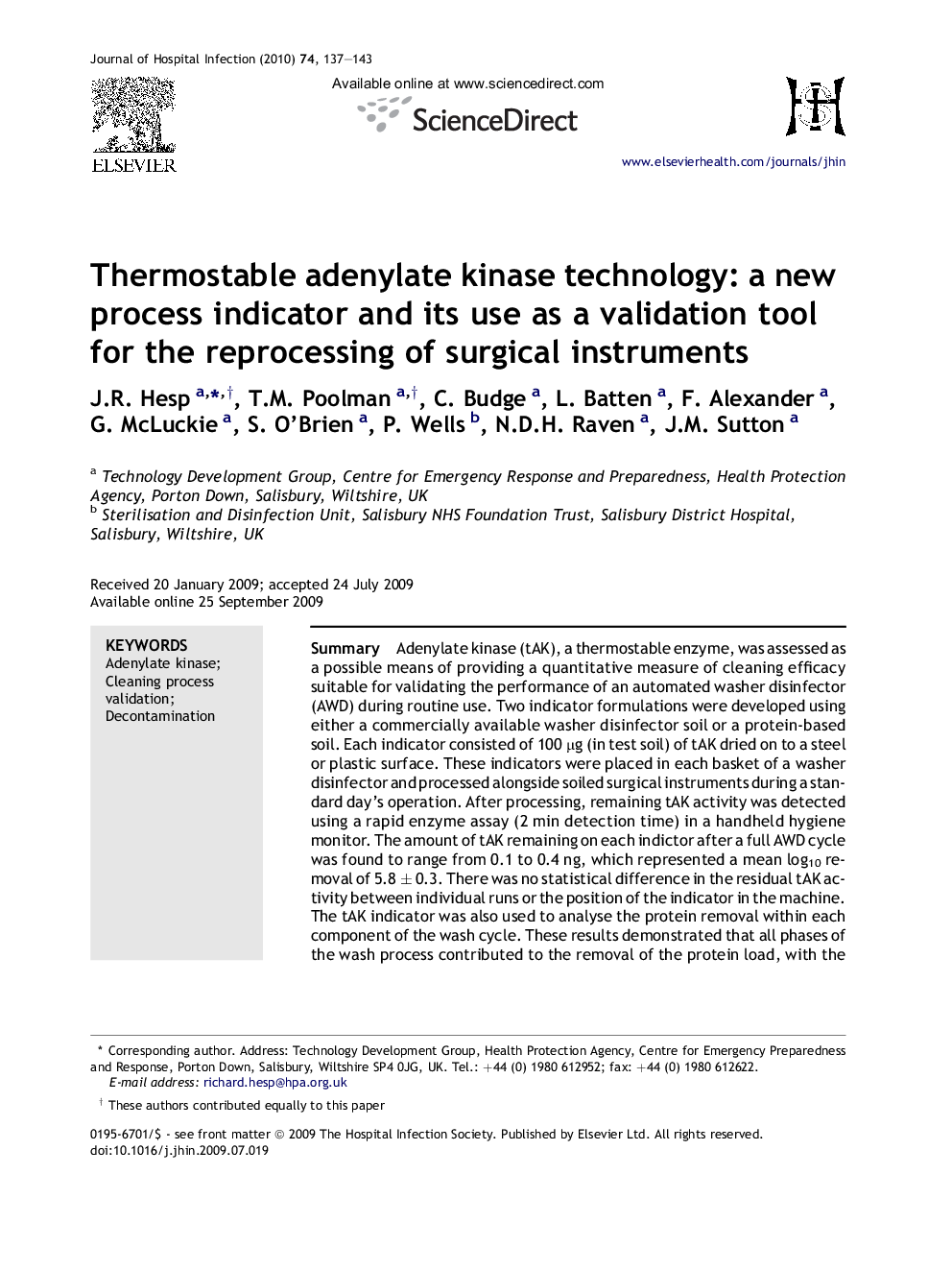| Article ID | Journal | Published Year | Pages | File Type |
|---|---|---|---|---|
| 3372828 | Journal of Hospital Infection | 2010 | 7 Pages |
SummaryAdenylate kinase (tAK), a thermostable enzyme, was assessed as a possible means of providing a quantitative measure of cleaning efficacy suitable for validating the performance of an automated washer disinfector (AWD) during routine use. Two indicator formulations were developed using either a commercially available washer disinfector soil or a protein-based soil. Each indicator consisted of 100 μg (in test soil) of tAK dried on to a steel or plastic surface. These indicators were placed in each basket of a washer disinfector and processed alongside soiled surgical instruments during a standard day's operation. After processing, remaining tAK activity was detected using a rapid enzyme assay (2 min detection time) in a handheld hygiene monitor. The amount of tAK remaining on each indictor after a full AWD cycle was found to range from 0.1 to 0.4 ng, which represented a mean log10 removal of 5.8 ± 0.3. There was no statistical difference in the residual tAK activity between individual runs or the position of the indicator in the machine. The tAK indicator was also used to analyse the protein removal within each component of the wash cycle. These results demonstrated that all phases of the wash process contributed to the removal of the protein load, with the main wash alone being responsible for 3.6–4.0 log10 reductions in protein activity. We propose that a quantitative cleaning index using such rapid readout indicator devices would provide a valuable addition to the methodologies for validating cleaning processes.
